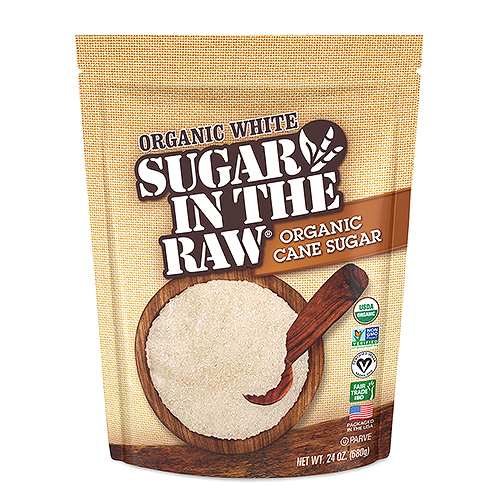Cane Sugar Processing Explained: What Takes Place Inside a Sugar Mill
A Comprehensive Introduction of the Health and Economic Effects of Cane Sugar Handling on Regional Areas
Walking stick sugar handling plays an essential role fit the economic landscape of regional areas, providing job opportunity and stimulating supplementary industries. Nonetheless, the health ramifications related to high sugar usage can not be overlooked, as they add to rising rates of obesity and diabetes mellitus. This nuanced vibrant welcomes a crucial evaluation of exactly how neighborhoods can enhance financial gains while resolving the pushing health difficulties they face. The exploration of educational campaigns and sustainable methods may simply hold the key to reconciling these conflicting passions. What strategies might communities carry out to accomplish this balance?
Financial Benefits of Walking Cane Sugar Processing
Walking cane sugar processing provides considerable economic advantages that extend beyond the instant agricultural sector. The growing and processing of sugarcane produce countless work opportunities, from farming to manufacturing and distribution. This work generation not just supports neighborhood economic situations but also fosters community development by supplying secure income resources for family members.
Furthermore, the sugar market stimulates secondary services, consisting of transportation, tools supply, and packaging services (Cane Sugar Processing). As these fields expand, they add to a more durable economic structure, improving overall community strength. The export possibility of processed walking stick sugar better magnifies financial advantages, positioning regions as competitive players in global markets
Investment in modern processing centers can bring about increased efficiency and effectiveness, thus reducing waste and enhancing source use. This shift not just benefits the regional economic situation yet likewise supports sustainability initiatives by lessening environmental effects.
Moreover, the earnings generated from walking cane sugar processing can be reinvested in regional infrastructure, education, and medical care, promoting all natural area development. Generally, the financial advantages of cane sugar processing are multifaceted, offering a structure for withstanding prosperity in agricultural regions.
Health Dangers Related To Sugar Usage
Excessive sugar intake poses significant health risks that call for severe interest. High intake of added sugars, particularly from processed foods and drinks, has been connected to countless health and wellness complications. Among the most pressing problems is excessive weight, as sugary diets contribute to an enhanced calorie intake without offering essential nutrients. This extra can result in metabolic disorders, consisting of kind 2 diabetes mellitus, which has become progressively prevalent in both kids and adults - Cane Sugar Processing.
Additionally, high sugar consumption is related to heart disease. Raised blood glucose degrees can lead to insulin resistance, a forerunner to various heart-related issues. Additionally, sugar can have harmful results on oral wellness, causing dental caries and periodontal illness, as bacteria in the mouth grow on sugar, producing acids that wear down tooth enamel.
In addition, emerging research study suggests a possible web link in between high sugar usage and mental health conditions, such as depression and anxiousness. As communities face these wellness risks, it ends up being necessary to advertise awareness and motivate healthier nutritional selections. Resolving sugar consumption is critical not just for individual wellness yet also for the overall health of neighborhood areas, highlighting the requirement for detailed public wellness methods.
Environmental Effects of Sugar Manufacturing
Frequently ignored in conversations concerning sugar's ramifications is the significant environmental effect of sugar manufacturing. The farming of sugarcane frequently demands comprehensive land use, bring about deforestation, loss of biodiversity, and disturbance of neighborhood ecological communities. The conversion of forests and marshes right into sugar plantations can cause environment destruction, threatening countless varieties and modifying ecological equilibrium.
Furthermore, sugar manufacturing is resource-intensive, consuming significant quantities of water for irrigation. This can lead to exhaustion of neighborhood water sources, detrimentally affecting both agricultural practices and neighborhood access to clean water. Additionally, using chemical plant foods and pesticides in sugarcane farming can contribute to soil destruction and water air pollution, as overflow from these chemicals goes into neighboring rivers and lakes, affecting water life and human health.
The ecological footprint expands to the processing phase, where energy usage and waste generation further exacerbate eco-friendly worries. Air air pollution from burning sugarcane fields, along with greenhouse gas emissions, add to environment modification. Therefore, the environmental effects of sugar production warrant severe factor to consider, urging stakeholders to take on even more lasting methods to minimize these damaging impacts on local ecological communities and areas.
Job Production and Community Development
The ecological difficulties posed by sugar production are typically reversed by its capacity for financial advantages, especially in task production and neighborhood development. The walking cane sugar market functions as a substantial source of employment in numerous country areas, providing work across different ability degrees, from agricultural labor to blog handling and circulation roles. This employment not just supports private families but additionally adds to the general economic vigor of regional areas.
Additionally, the establishment of sugar processing facilities promotes ancillary companies, such as transportation solutions, tools supply, and maintenance suppliers. As these organizations thrive, they develop added work and bolster regional economic situations. The earnings produced from the sugar market also leads to boosted tax incomes, which can be reinvested into area solutions such as education and learning, facilities, and healthcare development.
Additionally, the sugar sector typically involves in neighborhood advancement efforts, such as supporting regional institutions and health and wellness programs, therefore boosting the top quality of life for residents. By cultivating strong neighborhood ties and advertising economic development, the cane sugar processing market plays an essential duty in uplifting regional populaces, making it a necessary component of sustainable development techniques in sugar-producing areas.
Balancing Wellness and Economic Development
In navigating the complexities of walking cane sugar handling, an important difficulty exists in balancing health and wellness considerations with financial growth. The sugar industry substantially adds to neighborhood economic situations by generating jobs, boosting related industries, and increasing tax obligation incomes. However, the health and wellness ramifications related to extreme sugar intake can lead to chronic illness such as obesity, diabetes, and cardio concerns, which can worry public health systems and diminish labor force productivity.

Furthermore, regulative frameworks can play a crucial duty in guiding market methods in the direction of even more health-conscious and lasting approaches. By promoting partnership between federal government bodies, health and wellness companies, and the sugar market, areas can browse the duality of wellness and financial development, guaranteeing that the benefits of cane sugar processing are linked here equitably shared while prioritizing public health and wellness.
Final Thought
In verdict, the handling of cane sugar provides both significant financial try this site advantages and noteworthy health threats for local communities. While it promotes task development and boosts regional development, the associated health and wellness worries, specifically regarding weight problems and diabetes, require a cautious harmonizing act. By promoting accountable intake and investing in area education and learning and lasting techniques, it is possible to take full advantage of economic advantages while lessening negative wellness results, thus guaranteeing a healthier future for neighborhood populaces.
Additionally, sugar can have detrimental effects on oral health and wellness, resulting in tooth cavities and gum condition, as germs in the mouth flourish on sugar, producing acids that erode tooth enamel.
Addressing sugar consumption is vital not only for specific health and wellness but additionally for the general well-being of regional communities, stressing the requirement for detailed public health and wellness strategies.
Regularly forgotten in conversations concerning sugar's ramifications is the considerable environmental effect of sugar production. The health implications associated with too much sugar usage can lead to chronic conditions such as obesity, diabetes, and cardio problems, which can burden public health systems and decrease labor force efficiency.
